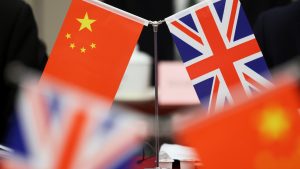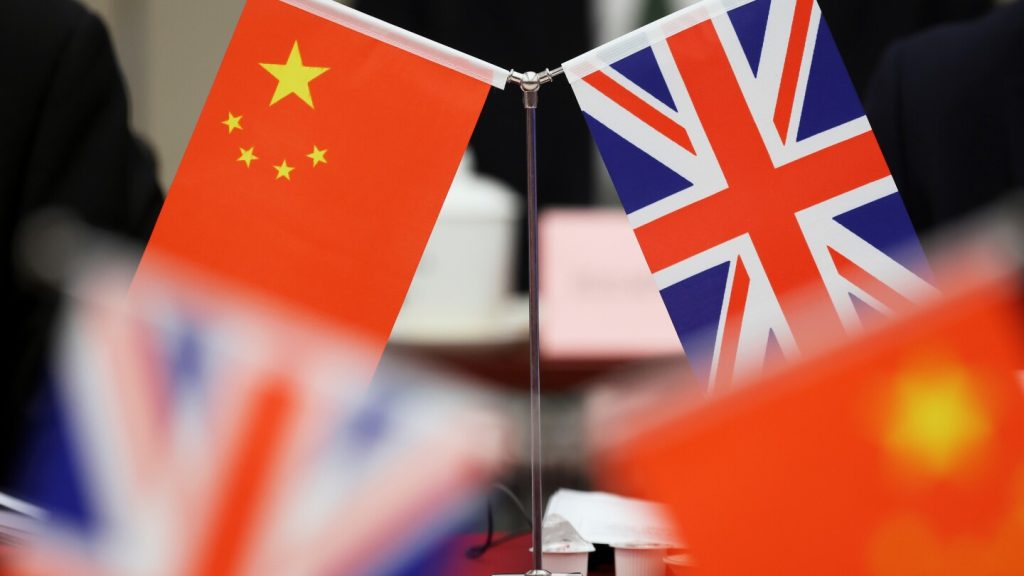The increasing attention on alleged Chinese espionage activities in the United Kingdom has sparked significant concern amongst security officials and parliamentarians. Recent warnings from MI5, the UK’s domestic intelligence agency, reveal a deliberate and widespread effort by Chinese agents to infiltrate and influence British institutions. This article delves into the details of these accusations, the UK government’s response, and the broader context of Sino-British relations, focusing on the rising threat of التجسس الصيني (Chinese espionage).
تحذيرات جهاز المخابرات MI5 بشأن التجسس الصيني (MI5 Warnings Regarding Chinese Espionage)
On Tuesday, MI5 cautioned British lawmakers about active attempts by Chinese spies to “cultivate” and “recruit” them. The method employed is particularly insidious: utilizing recruitment agencies and front companies to establish contact. According to a statement by House of Commons Speaker Lindsey Hoyle, the warning detailed how Chinese nationals are leveraging professional networking platforms like LinkedIn for broad outreach, acting on behalf of China’s Ministry of State Security (MSS).
The aim, Hoyle explained, is not simply information gathering, but building long-term relationships as a foundation for future influence. These agents target individuals with access to sensitive information and strategic connections, operating through seemingly legitimate channels to mask their true intentions. This isn’t merely a security concern; it’s a direct challenge to the UK’s sovereignty and democratic processes.
تفاصيل عمليات التجنيد والتأثير (Details of Recruitment and Influence Operations)
MI5 specifically highlighted the profiles of two women, Amanda Chiu and Shirley Chen, on LinkedIn as examples of individuals potentially involved in these operations. These profiles, along with others of a similar nature, allegedly serve as a façade for intelligence gathering. Beyond parliamentarians, Home Secretary Suella Braverman revealed that individuals in other sectors are also being targeted. These include economists, researchers in think tanks, and government officials – all holding positions that provide access to strategically valuable data and insights.
Braverman emphasized the seriousness of the situation, characterizing it as a “covert and calculated attempt by a foreign power to interfere in our sovereign affairs for their own benefit.” She asserted that the government has zero tolerance for such activities. This proactive stance demonstrates a growing awareness within the UK of the multi-faceted nature of modern espionage. This extended reach highlights the sophisticated approach of التجسس الصيني.
رد فعل الحكومة الصينية والجدل الدبلوماسي (The Chinese Government’s Reaction and Diplomatic Controversy)
Predictably, the Chinese Embassy in London vehemently rejected the allegations, denouncing them as “baseless and malicious fabrications.” The embassy warned the UK against further actions that could damage bilateral relations. This response is typical of China’s approach to such accusations, often dismissing them as politically motivated and fueled by anti-China sentiment.
However, this official denial comes amidst a broader pattern of concerns about Chinese influence operations, raising questions about the transparency of dealings between the two nations. Furthermore, the abandonment of a previous espionage case in September – involving academics accused of passing information beneficial to Beijing – has fueled speculation about government interference and a reluctance to aggressively confront China.
الإجراءات الحكومية والاستثمار في الأمن السيبراني (Government Actions and Investment in Cybersecurity)
In response to these escalating threats, the UK government is implementing a series of measures. An investment of £170 million (approximately $224 million) is being directed towards upgrading the encrypted technology used by civil servants. This proactive step aims to bolster the security of sensitive communications and data.
This isn’t an isolated initiative, but part of a wider effort to strengthen the UK’s cybersecurity infrastructure and counterstate-sponsored espionage. Counterintelligence work is being prioritized, alongside efforts to raise awareness within targeted sectors about the risks of engagement with potentially malicious actors. Protecting national security is becoming increasingly intertwined with advancements in الأمن السيبراني (cybersecurity).
قضايا سابقة ومخاوف مستمرة (Previous Cases and Ongoing Concerns)
The recent MI5 warning is not an isolated incident. In January 2022, a similar security alert was issued, highlighting the activities of Christine Lee, a London-based solicitor allegedly working with the United Front Work Department, a known Chinese influence operation. Lee was accused of facilitating secret donations to British political parties and lawmakers on behalf of foreign nationals.
The Director-General of MI5, Ken McCallum, has publicly stated that Chinese government-backed activity poses an “everyday” threat to the UK’s national security. This interference encompasses not only cyber espionage and technology theft but also covert attempts to manipulate public life within the UK.
The collapse of the case against academics Christopher Perry and Christopher Cash, initially charged with providing China with information prejudicial to the UK’s safety or interests, has amplified these concerns. The prosecution was discontinued due to national security implications preventing the presentation of key evidence.
الخلاصة: تحدي متزايد يتطلب استجابة قوية (Conclusion: A Growing Challenge Demanding a Robust Response)
The revelations surrounding التجسس الصيني present a significant and evolving challenge to the United Kingdom. The sophistication of the methods employed, targeting not only government officials but also individuals in vital sectors like economics and research, underscores the seriousness of the situation.
The UK government’s response, while improving, is subject to scrutiny. Balancing economic relations with China with the imperative to protect national security requires a delicate but firm approach. Continued investment in cybersecurity, rigorous vetting processes, and increased public awareness are crucial to mitigating the threat. It’s imperative that the UK maintains vigilance and proactively defends its interests against foreign interference. Further discussion and engagement with the public and experts are encouraged to address this complex issue effectively.


